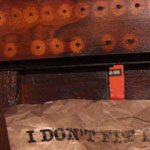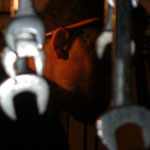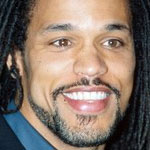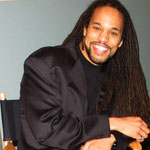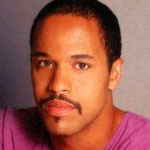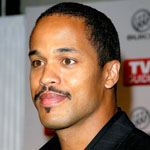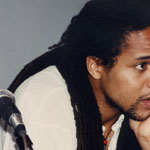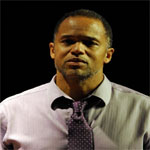An Actor Wonders How to Be in a Culture Devoid of Honest Self-Assessment
It’s Tuesday, November 15th, so how long is that after the presidential election? And that’s how long it’s taken for me to realize this most absurd of things has actually occurred. In fact, the level of absurdity is such that it cannot bear rational commentary. The only truth to be gleaned from the morass of sound that generated it, and that it is generating, is that it HAS occurred. We can try to put our brains around that fact if we like—it’s taken me a week—and take action from there. But I can leave the talking to the pundits of the entertainment news networks, who are wholly culpable in helping to bring this absurdity about. While I haven’t watched any television news since election night, I’m quite sure they are readily embarked upon the lucrative endeavors of talking about the absurdity that their talking about promulgated in the first place. They got you comin’ and goin’… It’s a helluva business… But I don’t have to invest. I don’t think any of it was my fault, and know that I wouldn’t be able to fix it if I tried. That doesn’t mean I won’t try. There’s much to do, but I don’t think there’s much to say at this point unless you’re selling something. It’s fucked in numberless ways, but there it is. And here we are…
If I’m going to talk, I want to talk about theatre. This is something I know. I’m an actor. I can impact this, a little bit with my talent, but that’s the cheapest of commodities. I can impact it more, much more, with something far more scarce, integrity, and the simple, but not easy act of showing up with all 110% of the artist in me ready to play, or fight, however you wanna bring it. Discussions of American theatre are important to me. We must have them because theatre is still the most ready catalyst for great societal shift in the world. When you come right down to it, in fact, a not even very slick piece of theatre-craft is all that the winning candidate really ever was. And just look at how the society has shifted! I suspect it will still be what he is several months from now when the audience realizes that the play isn’t very good. But here’s the thing… A whole lot of people don’t know one way or the other when a piece of theatre is good or bad. They can depend on theatre critics to tell them just like they can depend on some talking head to tell them which way the political wind is blowing, and what they should think about it. But the theatre critics don’t seem to really know redeeming social value from a hole in the ground these days either. It’s just a job. Several months down the road, a big hunk of the audience still won’t know that they’ve been sold a shit show, not just by the winning candidate, but by everybody who stood to make a buck from the spectacle as the whole putrid pageant unfolded in front of us. And I wonder about them, those smart people of business… Had they all long ago let atrophy the strength of conscience to make a living in some more life-affirming way, more humanity-affirming way, more love-affirming way? Or have the “better angels” flown, and do we truly no longer know what one is?
In the regions, which means not in New York, or Los Angeles, or Chicago, which means where most of American theatre happens, I’ve been noticing some disturbing trends. I notice them because I go there and I work, because I’m an actor, and as such I was taught to sniff out and present the truth. A long time ago I was taught. I was graded on it in school. “You didn’t tell the truth well enough, so you get a C in this class instead of an A or a B…” And it took me years to learn how to sort of do it right. I’m still learning. That’s the work. If you spend your life diligently attempting to be a superlative actor, you’re going to get obsessive about truth and how to see it, show it, and tell it.
So here’s a trend… Who sucked the last fucking drop of truth and integrity out of American Shakespeare? Some of those regional theatres have a ton of money, not many, but some. And they’ve been making theatre for twenty and thirty and forty years… Why are their actors and directors and producers all equally incapable of educated introspection, or constructive self-assessment? Why don’t the audiences and critics know what they’re NOT seeing, and why aren’t they crying “foul!” ?
I know I’m talking in generalities. And nobody needs to take my word for it. I could be just another pundit on the entertainment news rattling on and on replete with commercial breaks about something slanted in the direction of my particular subjective perspective. And I’ve got a seriously subjective perspective about this, there’s no doubt. I’m an actor, and I love the theatre, and I love Shakespeare. And as such, and being old enough to have had a big chunk of life’s un-purchasable education about all three of the above, I believe that it’s ALL about truth, and that truth should be free and accessible and easy to discern, like light, and love, and clean fucking water. But here’s another thing…
At one time, it was. At one time, somebody knew. At one time, newscasters and journalists were objective, so there was one set of facts, and people were forced to weigh them on their own, exercising intellect and strengthening their precious sense of discernment. At one time audiences could spot a snake oil salesman and distinguish him from any genuine article. If, in the time since, everyone has lost any tools for serious scrutiny, and what’s left to performers, and audience members, and the producers of spectacle that go between them, is only the ability for rationalizing to suit individual ends, where do we go from there?
So say I’m gonna mount my production of Hamlet… I’m gonna find me a bunch of actors that Juilliard trained badly. The actors aren’t gonna know that they were trained badly. They have no perspective from which to say to themselves, “I should be doing my Shakespeare better than this,” since their instructors didn’t ever really have a much firmer grasp on it than they do. They paid a lot of money for their educations, and rationally assumed for that price that their training was top notch. But that’s just the lie that the training institution has been riding to make the training appear to be worth 60K a year… Maybe it’s 50, or 45… There’s no way to argue that it isn’t good business… Shitty humanity, but damn good business… I’m gonna find me a director who’s not old enough to have looked at Shakespeare or Hamlet through anything but the lens of the last twenty five years. About all he knows is that Mel Gibson made a movie about it in 1990, and the English guy, Ken Branagh, made another one in 1996. And maybe all of the good acting and directing teachers had died by the time he got to university, but the upshot is directing school didn’t do no better shakes by him than acting school did by those actors. Still, he paid the same 60K a year, or 50, and, dammit, he’s gonna present like he knows somethin’. He’s gonna peruse this bunch of underdeveloped actors that don’t know they’re underdeveloped, and he might be able to distinguish the ones that downright suck, but after that, to him, they’re basically interchangeable. So he’s gonna start to cast for look; some simple shit he’s thought up with regard to Hamlet while looking at it—if and when he looked at it—through that maximally twenty five-year-old lens. Let’s say he’s thirty five, and had no reason nor desire to contemplate verse one of Shakespeare until they handed him Hamlet in High School (do they even do that anymore?). So the lens is narrower still, maybe twenty years… And now, here, with his inferior education, he wouldn’t know if the actress auditioning for Ophelia is speaking her verse well or not. All he knows is she looks kinda like Claire Danes, and that’s good for his concept, which is something else that his director school didn’t teach him. You don’t need no concept to do Shakespeare, but you DO need to know how to do Shakespeare…
And now say I’m the Producing Artistic Director in some regional theatre east of hiney-poke and west of bum-fuck with a lot of money. My joint has got some decent endowment because some old rich guy died and left it. He loved the theatre, revered it, was devoted to it and the passions that it stirred in him. He knew the difference between a stage moment truly sublime, and a shameless contrivance gratuitously tugging at his heart strings like some maudlin movie melodrama, and thus he was probably the last guy to know the difference between a snake oil salesman and any genuine article. Then he died. I hire all the actors AND the director. Why did I hire these particular pretenders masquerading as artists? I don’t know. I mean I don’t think I’m so old and tired as to have forgotten how to know true vision and skill from fuck-all. But I am way older than I was when I started this shit. I know aspiring theatre professionals have got to know nothin’ before they can know somethin’. And neophytes are tractable. It requires real effort and engagement to deal with true, grown artists who won’t be denied, abbreviated, or compromised, bringing all of their emotio-intellectual (yeah, I made it up) energy to bear on a project. It’s a whole lot easier to deal with juvenile aspirants who have no well-calibrated gauge for, and really don’t give a shit about the relative truth of the moment they’re in just so long as it’s on the way to the next gig and their becoming somebody. If they pretend at competence well enough, before an audience whose truth meter has fallen into disrepair as well, they learn, who really cares? This is fine. In some respects I even hire my audience. I’ve been handing them theatre at 80 or 90 or so bucks a ticket for the last fifteen years, and I’ve pretty much got them trained with regard to what’s good and what’s not. I told them, “The stuff I produce is really good, whether you know it or not. Trust me. Believe me. It’s terrific… If you think it’s not good, it’s probably because you just don’t get it. I mean, it’s Shakespeare after all. But hang in there. Keep comin’ back and it will start to make sense to you. For now, when you see other people laugh, that’s because something in my production is really funny. And when they stand up at the end, that’s how you’ll know for sure that the stuff I produce is really good.” These are the people to whom I hand my Hamlet performed by a bunch of bad actors who don’t know they’re bad, having been directed by a bad director who doesn’t know he’s bad either. They all stand up and clap and then go home not knowing what they DIDN’T see. I do dress it up nice with a lot of expensive bells and whistles. Audiences today mostly like shiny stuff.
Look, there are exceptions. A show like Hamilton will come along and change everything for a hot minute with its daring and its intelligence and its genius before it is hijacked by corporate interests and sold to the highest bidder. And once that happens it will have become too pricey a ticket for most of the aspiring young theatre makers in search of good training and examples of artistic innovation to see it.
The rest? Well, if it is a matter of shit rolling downhill, it starts with me, the producer, right? I who, somewhere along the line lost sight of the fact that truth matters. Maybe I forgot the reasons that I wanted to make theatre to begin with, forgot the first theatrical experience that stopped my heart for, like, six full beats, and I said, “I want to be able to do that!” Now, I just want to have my home and my bed and my dog and my lover, and not work too, too hard. Some of us artistic directors of regional theatres make upwards of $600,000 a year while the actor’s union has yet to be able to negotiate them a living wage anywhere but on Broadway… But that’s business. And here’s something else… Most of the people who run the theatre, I mean staff, sales, box-office, publicity, education, custodial, they don’t really care if a show tells the truth or lies its ass off. They’ve been pulling down a check for twenty five years. As long as that check keeps coming, they’re good. And it keeps coming because the people do. And the reason they do is because they don’t know what’s not to like. The fewer tools of discernment that a culture cultivates—or perhaps I should say the more tools of discernment that it’s lost—the easier it is for me and everyone like me to sell lies and call it transcendent truth, abject mediocrity and call it excellence… To serve my overtly personal needs and call it my most altruistic of intentions… To do business and call it art. Or call it Health Care. Or call it Education. Or call it Criminal Justice. Or call it Governance.




